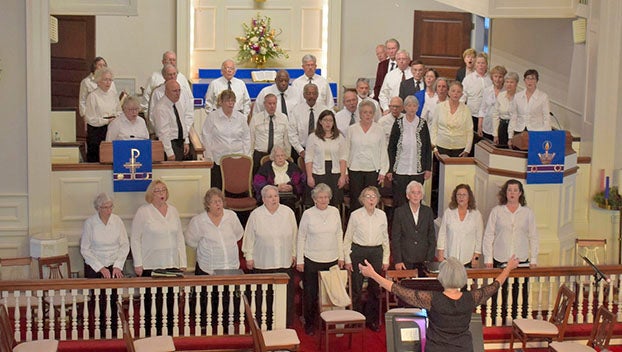Virginia Coronavirus Fraud Task Force created
Published 4:31 pm Friday, March 20, 2020
|
Getting your Trinity Audio player ready...
|
Federal and state officials have launched a team to protect citizens from fraud in the midst of the COVID-19 pandemic.
According to a Department of Justice release, the Virginia Coronavirus Fraud Task Force is a joint federal and state partnership to be led by assistant U.S. attorneys from the Eastern and Western Districts of Virginia in partnership with fraud investigators from the Federal Bureau of Investigation (FBI) and the Virginia State Police (VSP).
The task force’s mission, the release notes, is to identify, investigate and prosecute fraud related to the ongoing coronavirus pandemic in Virginia.
“Exploiting a global pandemic for financial gain is not only morally reprehensible, it is likely criminal,” Thomas T. Cullen, U.S. attorney for the Western District of Virginia said in the release. “Federal prosecutors in Virginia are working closely with the FBI and the Virginia State Police to identify individuals who are engaging in coronavirus fraud, in its various forms, and preying on vulnerable populations. We are focused on the fraud, not the amount of the loss, and will utilize all available tools and statutes to put bad actors in federal prison.”
- Zachary Terwilliger, U.S. attorney for the Eastern District of Virginia, noted fraudsters are already attempting to use fear in order to scam Virginians during the pandemic. The task force, Terwilliger said, will ensure members of the commonwealth do not fall victim to this fraud.
David W. Archery, special agent in charge of the FBI’s Richmond Division, listed some tips to help Virginia residents avoid being victimized by scams surrounding COVID-19.
Archery recommended individuals avoid opening email attachments or clicking on links from senders they don’t recognize.
“Verify the information being shared actually originates from a legitimate source,” he said.
He also recommended individuals do not share their logins, banking information or other personal info in response to an email.
“Only visit websites that you have manually typed their domains into your browser,” he added.
Archery noted those who believe they have fallen victim to an internet scam or want to report suspicious activity can do so by visiting the FBI’s Internet Crime Complaint Center at www.ic3.gov.
Gary T. Settle, VSP superintendent, said the Virginia Coronavirus Fraud Task Force will review and investigate all credible leads of fraud associated with the pandemic, regardless of the loss amount.
The task force will focus on schemes to exploit Virginia’s vulnerable populations, including the elderly. Federal prosecutors from the Eastern and Western Districts of Virginia will meet and confer with their agency counterparts from the FBI and VSP on a regular basis, the release stated.
Assistant U.S. Attorney Kaitlin G. Cooke will serve as the COVID-19 fraud coordinator in the Eastern District of Virginia. Assistant U.S. Attorney Michael Baudinet will serve as the fraud coordinator for the Western District.
Some examples of scams surrounding the COVID-19 pandemic, according to the release, include:
- Treatment scams: Scammers are offering to sell fake cures, vaccines and advice on unproven treatments for the virus.
- Supply scams: Scammers are creating fake shops, websites, social media accounts and email addresses claiming to sell medical supplies currently in high demand, such as surgical masks. When consumers attempt to purchase supplies through these channels, fraudsters pocket the money and never provide the promised supplies.
- Provider scams: Scammers are also contacting people by phone and email, pretending to be doctors and hospitals which have treated a friend or relative for COVID-19 and demanding payment for the treatment.
- Charity scams: Scammers are soliciting donations for individuals, groups and areas affected by COVID-19.
- Phishing scams: Scammers posing as national and global health authorities, including the World Health Organization (WHO) and the Centers for Disease Control and Prevention (CDC), and are sending phishing emails designed to trick recipients into downloading malware or providing personal identifying and financial information.
- App scams: Scammers are also creating and manipulating mobile apps designed to track the spread of COVID-19 to insert malware which will compromise users’ devices and personal information.
- Investment scams: Scammers are offering online promotions on various platforms, including social media, claiming the products or services of publicly traded companies can prevent, detect or cure COVID-19, and the stock of these companies will dramatically increase in value as a result. These promotions are often styled as “research reports,” make predictions of a specific “target price,” and relate to microcap stocks, or low-priced stocks issued by the smallest of companies with limited publicly available information.
- Price Gouging scams: Individuals and businesses may sell essential goods, like hand sanitizer, for significantly higher prices than in a non-emergency setting. It is legally considered price gouging when the price of one of these products increases more than 20 percent its price one week prior to an emergency declaration from the Commonwealth of Virginia.
Those who believe they are a victim of fraud or would like more information about the virus can https://www.justice.gov/usao-wdva/covid-19-fraud.
To report fraud directly to the FBI, visit their website at https://www.ic3.gov/default.aspx





